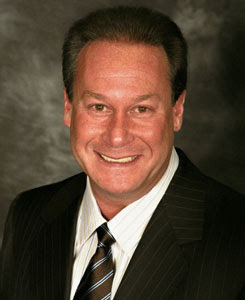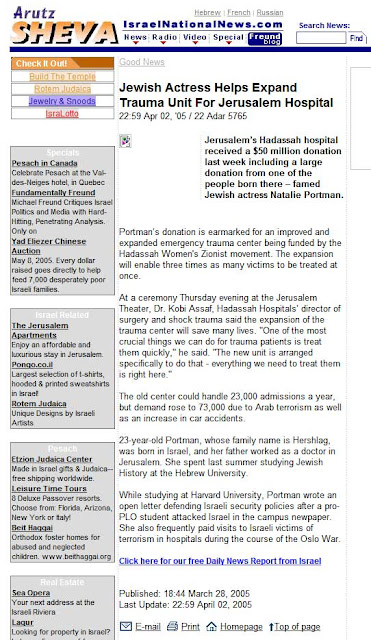Originally published on JTA.org
Parents find new benefit to Jewish camp: Freedom from themselves
When she took the stage recently before an audience of 400 Jewish camping enthusiasts, Lenore Skenazy wasted no time in addressing why she is known as “America’s Worst Mom.”
The author of a 2008 column in The New York Times describing how she let her 9-year-old son ride the subway home alone just to see if he could do it, Skenazy has been the subject of sharp criticism for her parenting philosophy. But Skenazy is fighting back, waging war against what she describes as overzealous and anxiety-ridden helicopter parents who hover over their children rather than letting them be “free-range kids,” affording them the freedom to make mistakes.
She even wrote a book on the subject: “Free-Range Kids: Giving Our Children the Freedom We Had Without Going Nuts with Worry.”
 |
| Lenore Skenazy at the Foundation for Jewish Camp’s Leaders Assembly |
“Sending your kids to camp is a fantastic way to give kids back their freedom,” Skenazy said at the Foundation for Jewish Camp’s recent Leaders Assembly in this central New Jersey city. “Homesickness is a good thing. It shows they appreciate their home. So, thank God for camp.”
Summer camp has emerged as one of the most promising tools in the struggle to ensure Jewish continuity in an era when Jews face more choice and fewer barriers to assimilation. A recent study by the sociologist Steven M. Cohen commissioned by the FJC shows that campers grow up to be connected to Jewish life and identify proudly within the Jewish community as adults.
“The analysis indicates that they bring, first of all, an increased inclination to practice Jewish behaviors in their lives, from Shabbat candle lighting to using Jewish websites, and to appreciate the value of Jewish charity,” Cohen concludes in the study. “Secondly, they bring an increased inclination to value and seek out the experience of Jewish community, whether in the immediate sense of joining other Jews in prayer or in the more abstract sense of identifying with fellow Jews in Israel.”
Since its launch 13 years ago, the foundation has raised approximately $90 million to strengthen Jewish camps and, more recently, to encourage the growth of so-called Jewish specialty camps — those that focus on sports, art or outdoor adventures — in an attempt to siphon off some of the Jewish campers who might be drawn to non-Jewish camps focusing on specialty areas.
But the focus on identity building has obscured what some say is another, less-touted benefit of the camp experience that should also be a draw for Jewish parents: affording their kids a measure of freedom from intensive parenting.
“Kids go to camp and gain independence,” said Nancy Lublin, the founder of the nonprofits Dress for Success and DoSomething.org, and another speaker at the conference. “That’s why we need camp. It’s about the fun, tradition and independence. Go get dirty, get lice, sprain something. Parents will see that they don’t come home with their nose pierced, purple hair or worshiping the devil. It’s okay.”
 |
| Nancy Lublin of DoSomething.org addresses Jewish Summer Camp leaders |
Helicopter parenting, a term used to refer to parents that hover over their children and pay exceedingly close attention to their every activity — sometimes to a degree that borders on smothering — is hardly a Jewish phenomenon. It has been the subject of numerous books and articles, and of late has sparked its own backlash. But Jewish parents, and particularly the much-maligned stereotypical Jewish mother, may be more susceptible to such impulses than most.
“We Jewish parents are definitely overprotective of our kids, and it’s tough to send them to overnight camp,” Lublin said. “But we all know it’s the right thing to do. It’s just what Jews do.”
For some parents, however, summer camp may not be a cure-all. Parents still call and write their kids and, with the proliferation of new communications technologies, they can remain involved to a degree that parents of a previous generation were not.
“Even when the children are away at camp, the parents will still be hovering,” said Michael Salamon, a psychologist in New York who has fingered overparenting as one of the reasons behind the so-called shidduch crisis, in which a glut of young unmarried adults — mainly in the Orthodox community — struggle to find suitable mates.
“I met with parents in a recent session who were so overprotective of their child that it was hindering the child’s ability to perform well in school,” Salamon said. “They told me they felt it was important to send their child to camp this summer to encourage independence, but really what I noticed is that they were looking for a vacation for themselves. They work so hard at parenting that they need a break.”
For parents like these, summer camp is a way to loosen the reins a little but in a way that still feels relatively safe.
Stephanie Steiner of Springfield, N.J., describes her own parenting style as “somewhat overprotective.” Still, every summer she ships off her kids to Camp Harlam, a Reform movement camp in Pennsylvania. They’ve demonstrated more independence as a result, which makes the experience — and the expense — worth it.
“We feel very comfortable with the camp and who is running it and how it is run, so it makes it easier,” Steiner said. “The camp’s motto is ‘Where friends become family,’ and we know our kids are so happy at their home away from home.”
Whatever the benefits of Jewish camping, there’s little sign that enthusiasm for it is on the wane. The Jim Joseph Foundation and the Avi Chai Foundation have put up $8.6 million in grant money to bring more Jewish children into the camping world by focusing on their specialized hobbies.
“Camp gives kids the permission to be themselves. Parents trust that camp is a positive place for building self-esteem and self-confidence,” said Jeremy Fingerman, the CEO of the Foundation for Jewish Camp. “Jewish camp brings that and an even stronger sense of community.”
(c) Rabbi Jason Miller | http://blog.rabbijason.com | Twitter: @RabbiJason | facebook.com/rabbijasonmiller











